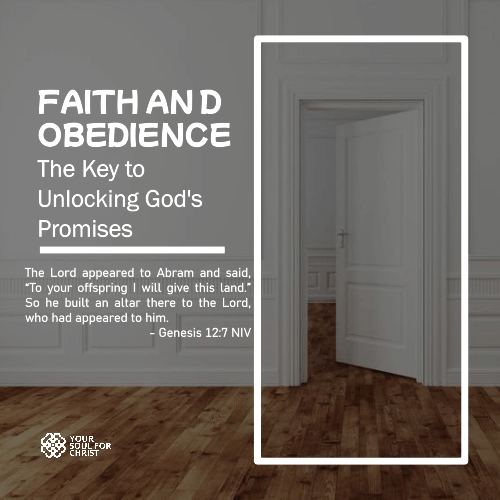Abram traveled through the land as far as the site of the great tree of Moreh at Shechem. At that time the Canaanites were in the land. The Lord appeared to Abram and said, “To your offspring I will give this land.” So he built an altar there to the Lord, who had appeared to him. From there he went on toward the hills east of Bethel and pitched his tent, with Bethel on the west and Ai on the east. There he built an altar to the Lord and called on the name of the Lord.
Genesis 12:6-8 NIV
This passage presents a pivotal moment in Abram’s journey of faith and obedience. As Abram travelled through the land, he reached the great tree of Moreh at Shechem. In that place, the Lord appeared to Abram and promised, “To your offspring, I will give this land.” This was a striking promise because Abram, then 75 years old, had no children. Despite the apparent impossibility of the situation—his advanced age, the presence of the Canaanites, and his childlessness—Abram held firmly to God’s word. Rather than questioning how God would fulfil this promise, Abram responded in faith and obedience.
This moment exemplifies what it means to live by faith and not by sight. Abram did not let the visible challenges deter him. Instead, he trusted God’s specific promise to give this land to his descendants. God was not only promising him land but also implicitly guaranteeing him an heir. Abram’s faith in God’s promise was a testament to his trust in God’s power and timing. Without questioning or doubt, he accepted God’s words. Consequently, he responded immediately with worship, building an altar to honour God’s presence and promise.
Abram’s act of building an altar was not an attempt to gain God’s favour. Instead, it was a response of gratitude and reverence for what God had already promised. This demonstrates that God’s mercy and grace are given freely, as seen in Exodus 33:19: “I will have mercy on whom I will have mercy, and I will have compassion on whom I will have compassion.” Abram’s response underscores a profound truth: God’s favour is not earned but received. So, this realisation should fill our lives with gratitude, reverence, faith and obedience.
Furthermore, Abram’s worship became a pattern. In verse 8, after moving from Shechem to the hills east of Bethel, Abram once again built an altar. There, he called on the name of the Lord. This consistent act of worship shows that Abram’s encounters with God were not isolated incidents but part of a deep, ongoing relationship. Through this pattern, Abram demonstrated that worship and reverence for God were to be regular parts of his life. They are not only responses to extraordinary moments.
For believers, Abram’s life is a powerful reminder that God’s promises and mercy, though undeserved, should inspire a life of faithful worship and devotion. Like Abram, we are to build “altars” in our own lives—times and places dedicated to worship, reflection, and communion with God. Through this continuous fellowship, we deepen our relationship with Him. Likewise, we grow in our understanding of His will and align our lives with His purpose.
In conclusion, Abram’s story teaches us the importance of faith and obedience to God beyond visible circumstances. It invites us to respond to His promises with gratitude and worship and cultivate a pattern of consistent devotion. As we walk with God, let us, too, build “altars” in our lives, reminding ourselves of His promises and grace. In doing so, we move closer to the life God has designed for us—a life marked by faith, obedience, devotion, and a deepening relationship with Him.
